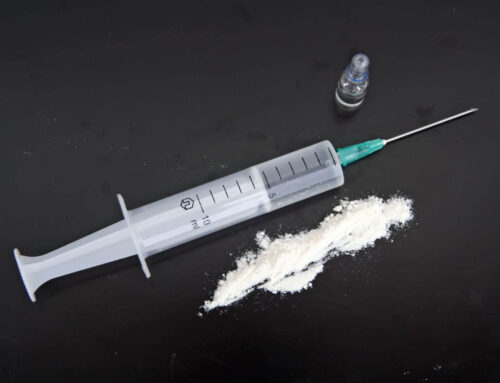
Psychiatrist appointment: Attention Deficit Hyperactivity Disorder (ADHD)
Attention Deficit Hyperactivity Disorder (ADHD) is a neurodevelopmental disorder that typically begins in preschool or early school years, usually before the age of 12. It manifests as a persistent pattern of attention deficits (difficulty focusing) and/or hyperactivity and poorly controlled impulsivity lasting at least six months. Notably, according to the previous International Statistical Classification of Diseases and Related Health Problems (ICD-10), the diagnosis of ADHD required the first symptoms to appear before the age of 6, with both attention deficits and hyperactivity-impulsivity present. Under the new ICD-11 classification, the clinical onset age is appropriately shifted to a later stage, and the disorder is categorized into three types based on symptom presentation:
- Inattentive type: Characterized by attention deficits without hyperactivity.
- Hyperactive-impulsive type: Characterized by hyperactivity without attention deficits.
- Combined type: Exhibiting both inattentive and hyperactive-impulsive symptoms.
Common Symptoms of Attention Deficit Hyperactivity Disorder (ADHD)
- Lack of close attention to details.
- Careless mistakes in schoolwork, tasks, or other activities.
- Difficulty maintaining attention during tasks, lectures, conversations, or reading for extended periods.
- Appearing as though not listening during direct conversation, often daydreaming or thinking about something else.
- Struggling with planning, executing, and organizing schoolwork or tasks.
- Difficulty adhering to deadlines.
- Forgetfulness in daily activities and frequent loss of items (e.g., school supplies, pencils, books, tools, wallets, keys, documents, glasses, or phones).
- Distractibility by external stimuli or unrelated thoughts.
- Difficulty remaining seated, fidgeting, or leaving seats in situations where sitting is required.
- Struggling to stay still for long periods, such as in restaurants or meetings.
- Excessive talking.
- Difficulty waiting for their turn during conversations, games, or activities.
- Interrupting or intruding on others’ conversations or games.
- Using others’ belongings without asking or receiving permission.
- Acting without considering risks or consequences (e.g., engaging in potentially dangerous behavior, impulsive decision-making, reckless driving).
ADHD symptoms of inattention and/or hyperactivity-impulsivity must be present in at least two or three different settings or contexts, such as school, home, work, or social interactions with friends and family. Over time, including adulthood, the manifestations and characteristics of ADHD can significantly vary and evolve, partly due to adaptation to the disorder and the development of compensatory skills. However, due to the disorder’s pathophysiological mechanisms, influenced by genetic, biological, and psychosocial factors, up to 90% of children with ADHD continue to experience problems with attention and/or hyperactivity-impulsivity in adulthood. Given that ADHD is associated with an increased risk of comorbid mental and physical health issues, including mortality due to accidents, as well as significant learning and functional difficulties, early detection of ADHD symptoms and a comprehensive clinical assessment are the first steps toward preventing complications and effectively applying treatment methods.
Diagnosing ADHD
To diagnose ADHD, a psychiatrist must identify the general criteria for ADHD in accordance with the International Classification of Diseases (as of 2022, ICD-11) or the Diagnostic and Statistical Manual of Mental Disorders, Fifth Edition (DSM-5). This diagnosis is supported by medical history and corroborating information from other sources (family members, close associates, school staff, psychologists). For a more objective assessment, it is recommended to undergo the QB test in a licensed and qualified clinic and/or the DIVA test. Diagnosing ADHD in adulthood is often complicated by blurred memories or unassessed symptoms during childhood. Moreover, poor concentration and hyperactivity are common symptoms of other mental health disorders, including bipolar disorder, depression, anxiety disorders, and substance abuse or addiction. Therefore, when diagnosing ADHD in adulthood, a psychiatrist must rule out other potential causes of attention and hyperactivity-impulsivity issues, as misdiagnosis and the prescription of ADHD stimulants can significantly worsen a patient’s condition.
ADHD Therapy
ADHD treatment primarily aims to develop self-control skills, improve social interaction, and enhance adaptive mechanisms to reduce inattention, hyperactivity, and impulsivity. Various, preferably multimodal, approaches are used, including psychoeducation, academic organizational skills training, parental education, behavior modification, cognitive-behavioral therapy, and psychosocial interventions. These approaches may involve relevant specialists depending on the patient’s age group and overall clinical picture. Pharmacological therapy using stimulants (e.g., methylphenidate, dexamphetamine) is prescribed strictly on an individual basis by psychiatrists in cases where cognitive and behavioral issues cannot be compensated through educational and psychotherapeutic methods or as part of a combined treatment plan.
Psychiatric Consultation: If you need to consult a psychiatrist or receive psychiatric assistance regarding ADHD, choose a specialist and book an appointment. During the consultation, our psychiatrist will help identify the mental health issue and find appropriate solutions.



